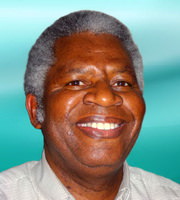Welcome!

Welcome to the Canadian Positive Psychology Network website!
Positive psychology focuses on how to help people prosper and lead happy and healthy lives. Positive psychology methods have been validated by many research studies all around the globe. There are thousands of therapists practicing positive psychology worldwide and millions of people benefiting from positive psychology techniques. Positive Psychology is about three main concerns: positive emotions, positive individual traits, and positive institutions.
Understanding and embracing positive emotions helps to achieve contentment with the past, happiness in the present, and hope for the future. Positive individual traits are various strengths and virtues, such as the capacity for love and work, courage, compassion, resilience, creativity, curiosity, integrity, self-knowledge, moderation, self-control, and wisdom. By promoting positive institutions we foster better communities, such as justice, responsibility, civility, parenting, nurturance, work ethic, leadership, teamwork, purpose, and tolerance.
We believe that everyone deserves happiness and, regardless of personal circumstances or conditions, there are some simple steps one can take on a path to a happier life. Concept of happiness is different for everyone, but most of us want to live meaningful and fulfilling life.
Canadian Positive Psychology Network was founded in 2012 with the goal of helping Canadians to get better access to therapists using positive psychology techniques. We practice in 14 different cities across Canada (see “About Us” page for more details). Please contact one of us and embark on a journey to happiness.
Positive Psychology Articles
Understanding the Nature of Happiness

Throughout human history, few things have been debated by philosophers so often and so deeply as the nature of Happiness. Is it an illusion, or a state of feeling content, either through letting go of anxiety or through attaining a state of satisfaction with one’s life? Is it simply a feeling of pleasure? What does it mean, exactly, to be happy?
Over the past few decades, those who study happiness have favoured the ranking of one’s overall “life satisfaction” (through questions such as, “On a scale of one to ten, how satisfied with your life are you right now?”) as indicative of one’s relative happiness— a hypothesis which has formed the basis of many of the happiness studies you’ve likely read about. Happiness has therefore been treated as something of a judgment, an equation people process based on observations of their lives.
This view, logical as it may seem at first glance, may be somewhat reductive, however. Psychologists have discovered there is a curious aspect to human satisfaction that possibly makes it a poor indicator of that elusive quality we call happiness—almost everyone, even those living in the most miserable of conditions (such as the slums of Calcutta), claims to be fairly satisfied with their lives overall. In a recent study of impoverished Egyptians, for example, researchers asked the study’s participants to explain why they were satisfied, and generally received responses following a similar central theme: “One day is good and the other one is bad; whoever accepts the least lives.”
Of course, the above statement does not exactly dance with ebullient joy; instead, it seems as though the poor Egyptians had long ago accepted the fact that they likely could do little to improve their lot in life, so had decided to accept it and remain as content as possible regardless. Doing so was an act of resignation, but by now it has become so practiced for many of these people that they rank their overall satisfaction with life as being pretty good.
Continue reading →Path from Contentment to Happiness

In 1978 Rabbi Harold Kushner wrote the best seller “When Bad Things Happen to Good People.” In it Rabbi Kushner addresses the question of why is it that if we live our lives grounded in positive values must we suffer? It would seem that living a good life should bring us happiness. Yet many of us are not happy.
The idea of being happy is a common concern expressed in therapy. Positive psychology (or rather distorted interpretation of positive psychology principles) brought a belief that happiness is a normal human condition, as such it is easily available to all. The result of this belief is an often mistaken assumption that not being happy means one is abnormal, that something is wrong with you.
This search for happiness has become a source of frustration for many people. As a response to this frustration there are plenty of self made gurus, who are more than ready and willing to sell you their secret to happiness. The selection of books, tapes, DVD’s, groups, clubs, and so on seem to never end. Each one promises untold happiness for your life. How to turn every negative into a positive. Sounds good doesn’t it?
This leaves us with an important issue, is happiness just waiting for you to embrace it as an achievable permanent state of mind?
The Myth of Permanent Happiness
The premise of this article is that a permanent emotional state of “being happy” is a myth and the only way to experience happiness is to change your state of mind. What is happiness? It is an emotion. A transitory mental or emotional state of well-being that provides us with necessary information as our response to pleasant or meaningful stimuli resulting in positive or pleasant emotions.
The problem with the happy emotion is that we are not able to sustain the necessary stimuli to trigger happiness for a prolong period of time. Once our happy emotion has completed its cycle, it stops. What we are left with are pleasant memories.
Continue reading →Practicing Kindness Transforms You and the World

Practice kindness in your everyday life? Why should I be kind when others aren’t? Will it matter and make a difference in the world full of angry and indifferent people? I was asked these questions by a very bright 18 year old girl who undergoes therapy for body dysmorphic disorder and depression. My answers: “Sure it will! And it will make a difference for you and for others!” We had a long conversation and my therapy client left the session feeling a little bit better about herself and the world.
In this post I will talk about the importance of practicing kindness and show how simple it is to develop kindness in you.
Barbra Fredrickson, a psychology professor at the University of North Caroline at Chapel Hill is known for her “Broaden and build” model of Positive Emotions. She stated that positive emotions serve a higher purpose in our lives – not just to feel good – by increasing our scope of action-thinking in terms of widening our physical, cognitive and social resources and responses. Her theory also stated that we can “store and build up” positive emotions, by creating around us a spiral of upwards positivity. Meaning the more positive energy you send out, the more likely you are to attract others that issue the same type of “energy frequency”.
But more than that, have you noticed how some people just seem to infect you with their positive energy? As if they made it more difficult to feel unhappy around them? Kindness as the positive emotion it is, can serve that contagious purpose just as well. Positive emotions also help you build up resilience.
Continue reading →Choosing a Value Driven Life
 There is a powerful attribute housed within all of us: we know it as self-confidence. We all have it. Some to a greater or lesser degree than others. If you look closely enough, you can see it at work in the decisions or choices we make.
There is a powerful attribute housed within all of us: we know it as self-confidence. We all have it. Some to a greater or lesser degree than others. If you look closely enough, you can see it at work in the decisions or choices we make.
Lacking Self Confidence
Depending on self-confidence, people can lead their lives in one of three ways. You can see self-confidence at work in those who live their lives without doubt and questioning. Then there are others for whom life is filled with an abundance of self-doubt. They seem never to be fully comfortable with any decision. That leaves a third group, a majority those living day to day, often in doubt while at other times very clear about what they should do or how they should behave.
Although this first group is smaller in number it is a force to be reckoned with. Its membership is made up of those with high levels of self-assurance. So much so that they can seem at odds with others; arrogant, rigid, always right. Within this group you will encounter those driven by purely altruistic motives and a handful who are diagnosable as sociopaths.
In our second group are those people who never seem quite sure about their interactions with the world. More often than not they are very capable of making good decisions, although they falter as though they haven’t a clue about their decisions.
Which brings us to the last group. These are people who, for a multitude of reasons, seldom are confident in their own decisions. Life is experienced as many forks in the road and they are there without a map. Much of their time spent is spent in self-doubt, wondering if the choices they have made are right or wrong. Questioning the past and asking, how would the outcome be different if only I had chosen differently?
Continue reading →How to keep up with life’s challenges

Life is complicated and it only seems to get more demanding every day. What can you do when you’re already doing your best and, despite your great physical and mental effort you are always behind? You are stressed and disappointed to see your goals in life not being met and unfinished tasks just keep piling up. Many of us are perfectionists, but under constant stress your perfectionism transforms into “neurotic perfectionism”, which results in mental disorders such as anxiety, eating disorders, depression, and even personality disorders.
So what’s the answer? To learn how to be efficient with your time and to get your mind set on fulfilling your goals. Here are few tips that may help.
Overwhelmed? Delegate or Prioritize.
When is it too much? It seems like we all need to be super-humans these days. It’s not exactly a crime to admit it is too much and humanly impossible to get it done. Management experts often say that the key management skill is to delegate! So, does everything really need to be on your shoulders and only up to you? One of the most valuable lessons I’ve learned professionally is that no one is irreplaceable. It’s a great humility lesson. If someone else can do it, then there’s no need to try and be wonder-woman or super-man! (And most likely fail at it, adding more frustration and more stress to your life). And when you cannot delegate (or in addition to delegation), prioritize. Create a list that assigns priorities to your tasks and goals. Sounds obvious? Sure, but very few of us do it and this simple approach can work miracles.
Continue reading →Learning to Hope

Hope and faith are powerful feelings of looking towards the future with an optimistic view. Medical science has recognized the importance of hope a long time ago. How many of us have heard of people facing life threatening illnesses like cancer beating the odds of survival based on their hope that they can make it?
Hope is one of important concepts in Positive Psychology. Hope isn’t something you should rely on only when you’re in a crisis. Being hopeful that the future reserves better things is also an important motor in motivation and drive. Why work harder if you can’t believe you will do better tomorrow than today?
If you are familiar with broaden-and-build model of positive emotions by Barbra Fredrickson, you might remember that building yourself up with positive emotions helps increase resilience in the face of crisis and also generates a cycle of positivity in your life, where you “attract” the positive towards you. It’s more or less like tuning into the positivity channel. Which doesn’t mean that no bad thing will happen to you, (we all know bad things happen to good people), but instead you will bounce back faster.
Continue reading →Forgiving and Moving on

Forgiving and moving on is an important part of leading a more positive and enjoyable life. It seems like holding onto grudges stains our hearts and doesn’t allow us to move on, keeping us stuck in a negativity cycle. Or with a grief in our hearts.
You may reply: “Forgiving someone is not as easy as it seems.” Depending on what’s been done to you, I tend to agree. It often takes some time before someone is ready to forgive. But you also need to be open to that thought or you might end up carrying that grudge your whole life.
Being imperfect humans that we are, we might start to generalize based on our grudge. I often hear people say “everyone is selfish and has a hidden agenda” based on a disagreement with someone they cared deeply about. Holding on to those negative feelings only prevents you from seeing the positive in our life and moving on. And like the self-fulfilling prophecy theory by sociologist Robert Merton states, the more negative or positive is your vision of life, the more probable it is for you to follow a path where your beliefs are met. Meaning, if you expect the worse, the worse will happen with a little help from you. (This is why keeping an optimistic mind usually helps).
Why forgive someone?
Not being able to forgive someone and repairing a broken relationship, especially with a family member is one of the most common regrets in later life and for people facing death. At the end of one’s life cycle, people are able to admit to themselves that holding on to a grudge and not being able to forgive someone was simply a waste of time and good energy.
Also, the power of forgiving as personal transformation cannot be ignored. Forgiving someone is a liberating process, a way to grow on a personal level. Being able to forgive and move on is a way to live a more fulfilling and liberated life. Holding on to a grudge is, in some ways, a form of imprisoning yourself.
Continue reading →A life’s legacy: the rippling effect

Author of great novels and psychotherapist Irvin Yalom talks frequently about the rippling effect we have on people’s lives. Imagine yourself as a rock sinking down a lake and causing a wave of emotions and impact on everyone around you. Did you truly believe you would come and go out of this world without influencing anyone? Without changing someone’s life? And that that effect wouldn’t be passed on?
Even if we don’t realize it, we’re constantly touching and changing others people’s lives simply by existing and that wave of change keeps on going through time and space and generations. Simply put: think about the great heroes and characters of our history. How much influence has had Leonardo de Vinci or Jesus in our lives? And they’ve lived and died centuries ago! It’s actually a comforting idea: your body may die but the ripple effect you’ve caused will live on as long as your teachings or your actions do too.
Apart from comfort it gives you a sense of responsibility. Your actions will be passed on and repeated even through generations. Doesn’t it give a new meaning to your job as a parent!
Looking back: feeling a sense of purpose
The Australian nurse Bronnie Ware published a book on the top five regrets of those who are reaching the end of their lives. It is a moving book that serves as a wake-up call and warning on how to face death with a sense of mission accomplished, as opposed to “I should have done better with my life”. In case you’re wondering the top 5 regrets of those facing imminent death are:
- Not having a courage to live the life you wanted and not the one that was expected of you
- Not having worked so hard and enjoying the simple pleasures of life more
- Not expressing one’s true feelings
- Not keeping in touch with friends
- Not letting yourself be happy (because happiness is also a choice)
How to Raise Positive Child

We all want to rise happy and well-adjusted children. Most of us have high expectations for our children: we want them to succeed and excel in their careers, to be loved and appreciated. It is part of our ego: at the end of the day we want to say that we did a pretty good job at parenting.
Here we will talk about raising a child to be positive. Most parenting articles we read and opinions we hear are about how our children should excel at school, how they should behave better, how they need to be socially accepted, how they should be happy in an egocentric manner and so on. But what they do not say is how we are going to raise them to true happiness by becoming a grateful, optimistic and altruistic person.
How exactly are we going to raise a happy and positive child? Well, good examples start from above! Do you think you’re teaching your child how to be a decent human being instead of a high achiever? Think again. According to a study by Richard Weissbourd, a Harvard psychologist who runs a project called Making Caring Common, 80% of children stated that their parents were more concerned about their achievement and personal happiness than caring for others. Are you starting to get worried whether you’re actually teaching your children what is important?
Why is being caring towards others a part of being a positive child? According to Dr. Martin Seligman, the father of Positive Psychology, authentic happiness can only be conquered through a meaningful life as opposed to a life of pleasure and engaging activities alone (all three levels are in fact important but long-lasting happiness can only be achieved through meaning). Could there be any more meaning to life than being truly involved and caring for others?
The research studies with Catholic nuns have showed that they have the highest happiness levels than other professional groups. They see meaning in their lives by devoting themselves to caring for others. Studies also found that positive emotions in early life is directly linked with overall health and longevity. Isn’t it something that every parent wants for their children?
Continue reading →How to Use Positive Psychology To Build Your Child’s Character

When it comes to raising our children, there are many available methodologies to help them build character. Positive psychology is one of them. Positive psychology focuses on the achievement of authentic happiness, as well as the ability of individuals to enhance themselves, their experiences and ultimately, their lives. I am a conventionally trained child psychologist, so it took me a long time to accept positive psychology as a legitimate science, yet there is undeniable evidence that it works for many patients.
Positive psychology focuses on fostering positive emotions, positive traits and positive institutions. These three pillars can be incredibly beneficial in the development of your child’s character. Positive psychology teaches parents that in order to build their child’s character, they must focus on the strengths and positive aspects of the child’s development. It is imperative to remember that capacities differ from one child to another; your child’s capacity to love, to be creative, courageous, or compassionate may differ from that of other children.
My staff and I do a lot of psychological assessments for children, and during that testing, especially during social emotional psychological testing, we can observe the effects of different parenting techniques. There is clearly a very strong correlation between the parenting style you use and child’s emotional health. Positive parenting style focusing on child’s strengths rather than weaknesses is the best approach to raise confident, emotionally mature person.
Parents must always remember to reward their children with praise whenever appropriate. Positive reinforcement is essential for positive child development. Children can identify the desired behaviors that elicited the meaningful praise. It is vital to provide children with specific feedback, especially when they believe no one is watching them. This will help developing a child’s inner strengths and virtues that will have a positive effect on their thoughts, emotions, and actions. Teamwork, an example of character strength, can be praised when siblings clean up their playroom together. Honesty, another example of character strength, can be complemented when your child admits that he got in trouble at school or tells you that returned a toy that he took without permission from his sibling. The praise should be honest, meaningful, and relevant. When such praise is given to a child, he develops healthy self-esteem, that is an essential component of emotional intelligence..
Continue reading →How to find purpose in your life

We all want to find meaning in our lives and live the life to its fullest. But the question remains: how do you find meaning and purpose in your life in the first place? What happens if you just don’t know or get lost along the way? Finding meaning and purpose in life is not as easy. It takes will power to look inside, face your own demons and faults and accept yourself as you are: a perfect-imperfect human being.
Finding your own way
In one of the previous posts we focused on your character strengths and talents. Have you already discovered what they are? What do people compliment you most for? Think about the activities and actions you perform that feel the most satisfying to you. My advice: start making a list and paying attention if nothing comes immediately to mind. You can also complete Dr. Martin Seligman’s online questionnaire (VIA Survey of Character Strengths) about personal strengths and talents and find out a little bit more how that can work in your favor.
Frankly speaking, I had sort of an identity crisis when the time came to choose a major in college. First I decided to go to environmental engineering just to find out after a semester that despite my great love for nature and conservation, I hated it there. All of a sudden, all my certainties and the path I had outlined for myself made no sense! How could I get out of that crisis? After a few weeks of self-reflection and a little of sulking for quitting college (you probably have heard this a lot but I had never quit anything in my life before), I started remembering what it was I most enjoyed doing in life and what people praised me the most for. I’ve always heard people around me saying “It’s so nice to talk to you. After talking to you I feel so relieved.” Besides, I really liked being a volunteer and to do community intervention and teaching. I love reading, so first I thought about becoming an English teacher to inspire others but finally (and with a little help from close friends and family) I decided on psychology. This is how I became a clinical psychologist. This was 15 years ago. I absolutely love my job and my patients and clearly found meaning in my profession.
Yet, your job doesn’t define you. The job is just my example. Many people find meaning in other areas of their lives: family life and raising kids, community work, preserving nature, political and social causes, etc.
Continue reading →The Search for Meaning: A Road Less Traveled.

Isn’t life a bit like taking a trip to some unknown destination? Let’s call our destination Meaning. If your trip is well planned and organized you will want directions to where you are going. But, before you can get those directions you will need to know where you are starting from. This all seems simple enough.
It’s time for a truth test. Have you noticed how we all wear different hats. Sometimes we even wear different hats at the same time. In our haste to find our way to Meaning we often fall victim to the latest “in” terms. Adjectives that we unquestionably accept as true. Some of these adjectives include descriptors like:
“Soccer mom”, “Easy”, “A loud mouth”, “Smart/stupid”, “Fat/skinny/Wow”, “Nerd”, “Friend”, “Rich/poor”, “Lazy/on their way to the top”
Is it any wonder that we get confused about who we are or what our role in life is?
Added to this is a world of contradictions, or mixed messages. Such things as the generation you most identify with, your gender, your position in life, and your level of involvement in the world around you all influence how you filter these mixed messages. Here are just a few of these messages:
|
“Stop and smell the roses” |
OR |
“I want the world and I want it now!” |
|
“Don’t sweat the small stuff” |
OR |
“The truth is in the details” |
|
“It is what it is” |
OR |
“You’re in charge.” |
The last factor holding many of us back from finding our own place called Meaning is our increased dependence on instant gratification. Gone for many is the patience needed to see things through to their logical outcome. It is difficult to have an attachment to things that are disposable.
Continue reading →
















